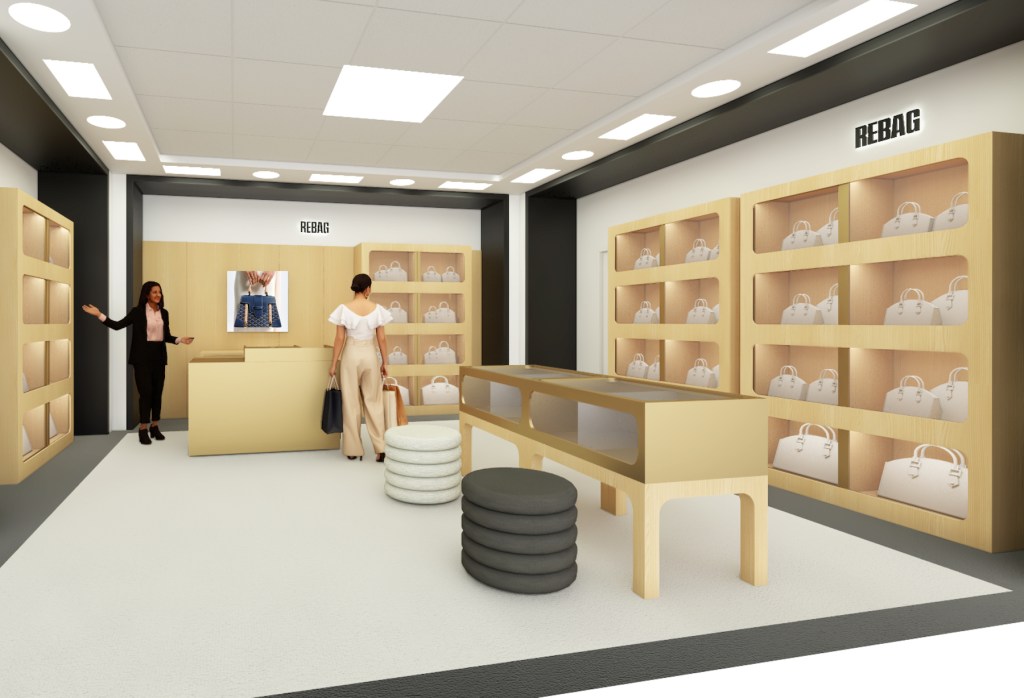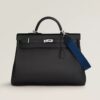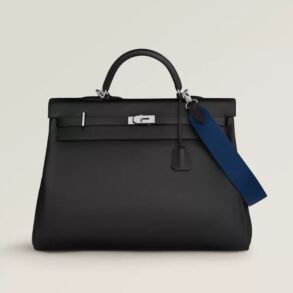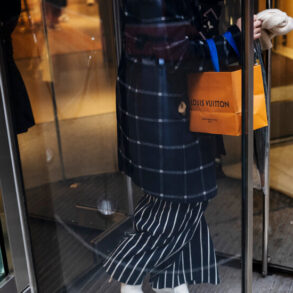
Rebag’s first version of a rewards program stood out in its market, offering perks and tiered benefits reminiscent of upscale department stores.
Now, the luxury e-commerce resale platform is going straight to the source.
Touted as a first-of-its-kind endeavor, the Rebag x Bloomingdales strategic retail and digital partnership wants to democratize the luxury goods market while encouraging circularity.
“While Rebag has explored exclusive partnerships with retailers in the primary market, such as unique digital trunk shows with Moda Operandi and an auction of limited-edition handbags with Christie’s, the Rebag x Bloomingdale’s strategic partnership is an industry first,” Elizabeth Layne, Rebag’s chief marketing officer, told Sourcing Journal. “This marks the debut of Rebag’s luxury resale concessions within a major department store, bringing a new level of accessibility and integration to the luxury resale market.”
Founded in 2014 as a destination for buying and selling luxury handbags, the high-end marketplace curated over 2,500 designer handbags, watches and fine jewelry to be sold on Bloomingdale’s website—with another 500-plus pieces in select stores nationwide—from “best-in-class” brands not typically stocking the department store’s shelves. Those stores include The Mall at Short Hills in New Jersey, Florida’s Town Center at Boca Raton, the Fashion Valley Mall in San Diego, an outpost in White Plains, New York, and the Westfield Fashion Square in California’s Sherman Oaks. Each store will have a Rebag “concession” showcasing pre-owned pieces for purchase. Bloomingdale’s shoppers, should they choose, can take advantage of Rebag’s presence and use the platform’s proprietary artificial intelligence (AI) tool to get quotes—and payouts—on their own (qualifying) closets.
“The custom-designed Rebag concessions are designed to reflect the Rebag brand’s aesthetic and operational style. Each concession mirrors the look of Rebag’s own stores, providing a cohesive brand experience,” Layne said. “The concessions will showcase a curated selection of pre-owned luxury items for purchase. Additionally, customers can receive offers for items they wish to sell, facilitating swift valuations and payouts on-site. This integration brings Rebag’s signature luxury resale service directly into Bloomingdale’s retail environment.”
The partnership wants to give Little Brown Bag loyalists a “seamless” online and physical shopping experience and “bridge the gap” between the new and pre-owned luxury markets by combining the “prestige of Bloomingdale’s with the innovative resale offerings of Rebag,” Layne said.
“We are delighted to partner with Rebag, an established leader in the luxury resale space, to meet customer needs with this curated addition to our assortment,” said Jennifer Jones, senior vice president and general merchandise manager of women’s accessories at Bloomingdale’s. “The strategic partnership brings a new set of ultra-luxury brands to Bloomingdale’s, while providing access to the finest pre-owned luxury items, enabling a full circular experience.”
For Bloomingdale’s, the collaboration aligns with its ongoing turnaround strategy.
The Cuup partner’s parent company, Macy’s Inc., shuttered five storefronts in January and made plans to close another 150 namesake “underproductive” stores over the next three years, including 50 by the end of the year. This marked the second biggest store closings since February 2020, when Macy’s announced it was closing 125 stores and cutting 2,000-plus corporate jobs. At the same time, the department store chain said it’s leaning into luxury, with plans to open 15 Bloomingdale’s nameplate stores over the next three years.
“We are thrilled to join forces with Bloomingdale’s, a name synonymous with luxury and quality,” said Charles Gorra, founder and CEO of Rebag. “This partnership epitomizes our vision of the complementary relationship between first-hand and second-hand luxury. By bringing Rebga’s expertise in sourcing and vetting goods to Bloomingdale’s discerning clientele, we are setting a new standard in the luxury retail experience.”
Rebag has a history of experimenting.
In 2018, the digitally native brand went physical with its “handbag heaven” concept and went on a “store opening spree” the following year. While Gorra told a pre-COVID audience that the goal was to open 30 outposts over the next few years, several heavens closed and only four remain.
In 2021, the high-end resale marketplace debuted Clair AI, an image recognition technology tool Gorra previously said was the “Shazam for handbags.” Clair—which stands for Comprehensive Luxury Appraisal Index for Resale—is the startup’s proprietary database containing 15,000-plus identification codes for high-end handbags. Clair AI goes a step further to ID any given purse’s brand and value based on an uploaded image.
In early 2022, it announced Rebag Rewards, its first-ever loyalty program. This was discontinued in May, replaced by the membership program Rebag+. An attempt at on-site auctions was in April of the same year, though Rebag quietly shuttered the concept. At the end of 2022, the reseller introduced Rebag Wallet, a tool incentivizing sellers to spend their earnings on the platform. A year later, a consignment option was offered to “reshape the luxury resale market by offering innovative solutions and exceptional service,” Gorra said at the time.
“Innovation and a tech-first approach have been at the core of Rebag since its founding,” Layne said. “By leveraging technology, we aim to bring transparency and standardization to the luxury market, making the buying and selling process seamless and straightforward.”
The Rebag x Bloomingdale’s collection is now available online, with dedicated Rebag concessions in select stores to follow. Designed as a permanent addition to the department store, “akin to any other shop-in-shop” experience, per Layne. The curated selection will “continuously” offer customers a “sustained opportunity to access and sell high-end designer goods.”
This post was originally published on this site be sure to check out more of their content.






